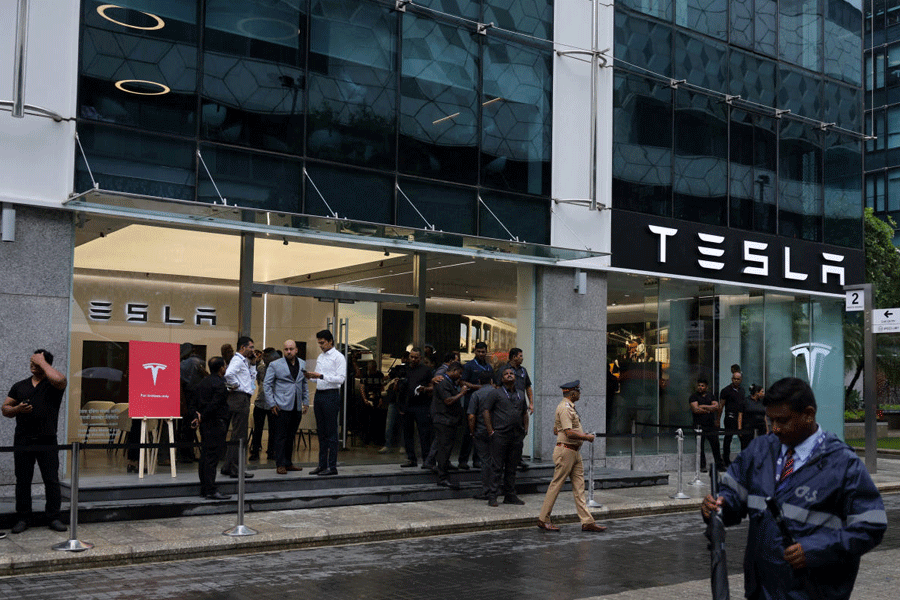Tesla Inc.’s debut in India has drawn a muted response, with the electric carmaker securing over 600 bookings since mid-July.
The figure has fallen short of the company’s expectations and raises fresh concerns about its global growth momentum.
Tesla now plans to deliver between 350 and 500 cars to India this year, with the first batch shipping from Shanghai in early September, reported Bloomberg.
Deliveries will initially be confined to Mumbai, Delhi, Pune and Gurugram, the report said, citing people familiar with the matter. Shipment sizes are being determined by full payments already received, as well as the company’s capacity to serve markets outside these four cities.
The company had set its sights on utilising its full 2,500-car annual quota in India, Bloomberg reported earlier.
Tesla had counted on its brand appeal and CEO Elon Musk’s ties with US President Donald Trump to break into India’s emerging EV sector.
But worsening US-India relations, Musk’s rift with Trump, steep import duties and India’s price-sensitive market have dampened those prospects.
Tesla did not respond to a request for comment.
India’s high import tariffs have pushed Tesla’s entry-level model to more than 6 million rupees ($68,000), well above the 2.2 million rupees where most EV sales are concentrated, according to auto intelligence firm JATO Dynamics.
This makes even the base variant of the Model Y unaffordable for most buyers in a country where EVs account for just 5 per cent of overall car sales.
The lacklustre start underscores the headwinds Tesla faces as it seeks new markets, while sales decline in China and the US, its biggest markets.
Global deliveries fell 13 per cent last quarter, putting pressure on the company to avoid back-to-back annual drops.
Tesla had bet on tariff cuts through US-India trade talks, but prospects dimmed after Trump imposed 50 per cent tariffs on Indian exports over its Russian oil imports.
A proposed India-Europe free trade pact, which would have enabled cheaper imports from Tesla’s German factory, is yet to materialise.
But Tesla’s order tally aligns with the small size of India’s premium EV market. About 2,800 electric cars priced between 4.5 million and 7 million rupees were sold in the first half of 2025, JATO data shows.
While Tesla showrooms have attracted footfall, that has not translated into the sales scale it hoped for.
The company avoids aggressive advertising and relies on brand reputation — a strategy that has proved less effective in India’s competitive market.
Still, Tesla is pressing ahead with expansion. It is installing Superchargers in Mumbai and Delhi and planning a third experience center in a southern city as part of its 2026 growth roadmap, Bloomberg reported.
Chinese competitor BYD Co., now the world’s largest EV maker, has already gained ground in India. It sold more than 1,200 Sealion 7 SUVs in the first half of the year, priced from 4.9 million rupees, despite facing the same steep tariffs, according to JATO.











